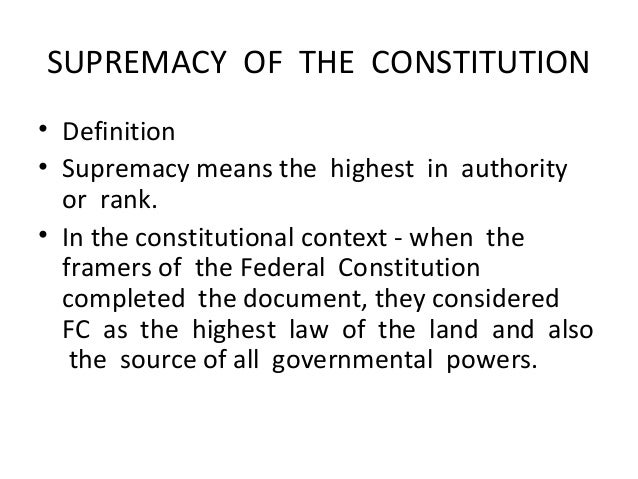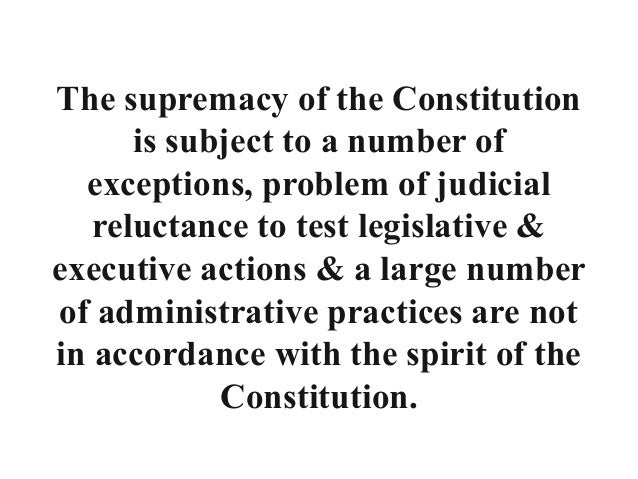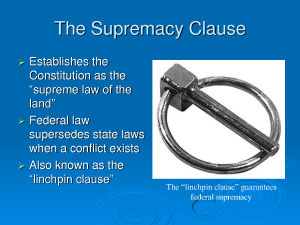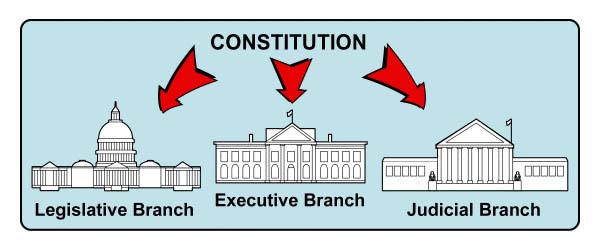SEPARATION
OF POWER
The concept
of Separation of Power is one which was developed to assist in the
maintenance of the rule of law, limiting the powers of government as well as
the abuse or misuse of powers. This concept postulates that if all the powers
in a state are vested in a person or body of persons, the freedom and liberty
of the citizens may not be guaranteed effectively.
For the
purpose of separation, the powers of government are separated into legislative,
executive and judicial powers.
Legislative
power – power to make laws.
Executive
power – power to enforce the laws made by the legislature.
Judicial power
– power to settle disputes between persons and officers of the state.
It is very
difficult to maintain a strict border line demarcation between the powers of
the three organs of government. The separation of the powers of the legislature
and judicial organs can be possible but that of the legislature and executive
has proved abortive.
The idea of
Separation of Power started in the European continent when the rulers
were discovered to be wielding absolute powers. It was discovered that in
England there was freedom and the rule of law which was attributed to Separation
of Power.
Writing in
1690, an American philosopher, John Locke (1632-1704) said it is too
great a temptation for human frailty for those who have powers to make laws,
should also have in their hand, the power to execute such laws. When this
happens, those who make laws disobey such laws at their execution to their
whims and caprices or private advantage.
 |
| John Locke |
In his
argument, John Locke discovered that if powers to make laws and execute
such laws were vested in a single authority, the rights and freedom of the
people may not be effectively guaranteed.
The idea of
Separation of Power was later developed upon by a French philosopher, Baron
de Montesquieu (1689-1755) in the light of his study of the British society
in the 18th century. This philosopher later paid dearly
for his writing/views on Separation of Powers as he was asked to be
executed by the French authorities on his return from Britain. They considered
his ideas totally unacceptable and dangerous to France.
At that
time in England, parliament succeeded in taking away from the king, the law
making powers and the independence of the judiciary became established. After
the passage of the Bill of Rights in 1683,
the executive powers of the king became established.
Hence,
Montesquieu found in England three functions to be performed by three
authorities, provided they act in accordance with the constitution.
 |
| Baron de Montesquieu |
Therefore,
in England, there was freedom, liberty and the rights of individuals
guaranteed.
By
separation of powers, Baron de Montesquieu meant three things:
1. There should be no overlapping of powers between one
department and another.
2. There should be no overlapping of functions between
one department and another.
3. No department should interfere or control the working
of another.
It is these
that Montesquieu posits that if all powers are vested in the same person or body of persons, the right and liberty of the citizenry will not be guaranteed.
While
expounding on the advantages of Separation of Power, Montesquieu
did not mean that there should not be checks and balances. The Americans while
writing their constitution took note of this, and provided for an elaborate
system of checks and balances. Each department of government while performing
its constitutional functions is restricted by constitutional limitations. The
executive powers are vested in the executive, legislative powers vested in
Congress and judicial powers are vested in the courts.
While the law making power is vested
in Congress, for a bill to become law, the assent or veto of the President is
required. If the president declines assent to any bill, his veto power can be
overridden if such a bill is passed by 2/3 majority of legislators in Congress.
The
president is elected by the people and is answerable to same and not
parliament. The president cannot dissolve parliament, neither can parliament
dissolve the president and his ministers. The president appoints his ministers
who are accountable to him.
The
executive cannot sit or take part in parliamentary proceedings. The president
is to send a bill to parliament to pass into law, but they are not bound to
pass such bill to law.
The
president has the right to appoint important government officials, ministers,
and judges but subject to parliament’s approval.
The
judicial function is that of the court, but parliament sometimes constitute
itself into a trial court, where the president or any member of the executive
is served with an impeachment notice for misconduct. The House of
Representative frames such charges and the senate tries them.
Where the
president is served impeachment notice and he is to be tried, the Chief Justice
presides over the parliament.
The
legislature makes laws, but the courts review such laws through Judicial
Interpretation. This function has made the judiciary super-legislature.
SEPARATION
OF POWER UNDER THE NIGERIAN CONSTITUTION
The concept
of separation of power is also enshrined in the Constitution
of the Federal Republic of Nigeria, 1999.
S.
4 provides for legislative powers i.e. power to make laws. It is made up
of the House of Representatives and the Senate.
S.
5 provides for executive powers exercisable by the president, vice
president, ministers or government departments on behalf of the president. The
president is to see to the implementation of the laws made by the National
Assembly.
S.
6(1)(3) provides for judicial powers exercisable by the law courts
that can be extended by a law of the National or State House of Assembly.
In Nigeria,
the law making power is vested in the legislature but under the principle of
delegation of power, members of the executive or judiciary are found to be
exercising such powers. e.g. by S. 46,
the Chief Justice has been authorized to make laws in respect to fundamental
human rights of the citizens. The Chief Justice has made this law which is the Fundamental Rights Enforcement Procedure Rule, 2009.
Members of
the legislature and the president are elected for four years in office. The
president cannot dissolve the Senate neither can the Senate call the president
to sack his ministers. Bills passed by the Senate require the assent of the
president before such bills become law. Where the president declines his
assent, such a bill becomes law when it is passed by at least 2/3 majority of
members of the National Assembly. ~ S. 58 CFRN.
The
president and his ministers are to be invited to attend a joint session of the
National Assembly to make an address of national or fiscal issues bothering the
country. ~S. 67(1)
Ministers
are to appear before the National Assembly or any of its committees to give an
address on operation of their ministries. ~ S. 67(2)
The
National Assembly is empowered to direct or cause an investigation to be
directed into the conduct of the affairs of any person, ministry, authority or
department of government that is charged or intended to be charged with the
duty for, or responsibility or the execution of laws made by the national
assembly and the disbursement or administering moneys appropriated or to be
appropriated by the National Assembly. ~ S. 88(1)
The
functions ordinarily performed by the courts are performed by the legislature. e.g.
S. 89, CFRN – the Senate is to summon any
person to give evidence orally or in writing, direct or circumstantial in
relation to any matter upon deliberation.
The
legislature can also give a warrant for such a person to appear before them to
present documents or give evidence when such a person fails to appear and as
not adduced any reason for his failure to appear before the National Assembly.
The
National Assembly is empowered to recover such moneys or expenses incurred in
compelling such a person’s appearance. It can recover such fee just as a fine
imposed by the court.
The Speaker
of the House of Representatives or the Senate President of the Senate can give
permit to any police officer or any person to compel its summon or warrant
directed to any person.
Any question(s)?













